PROJECTS
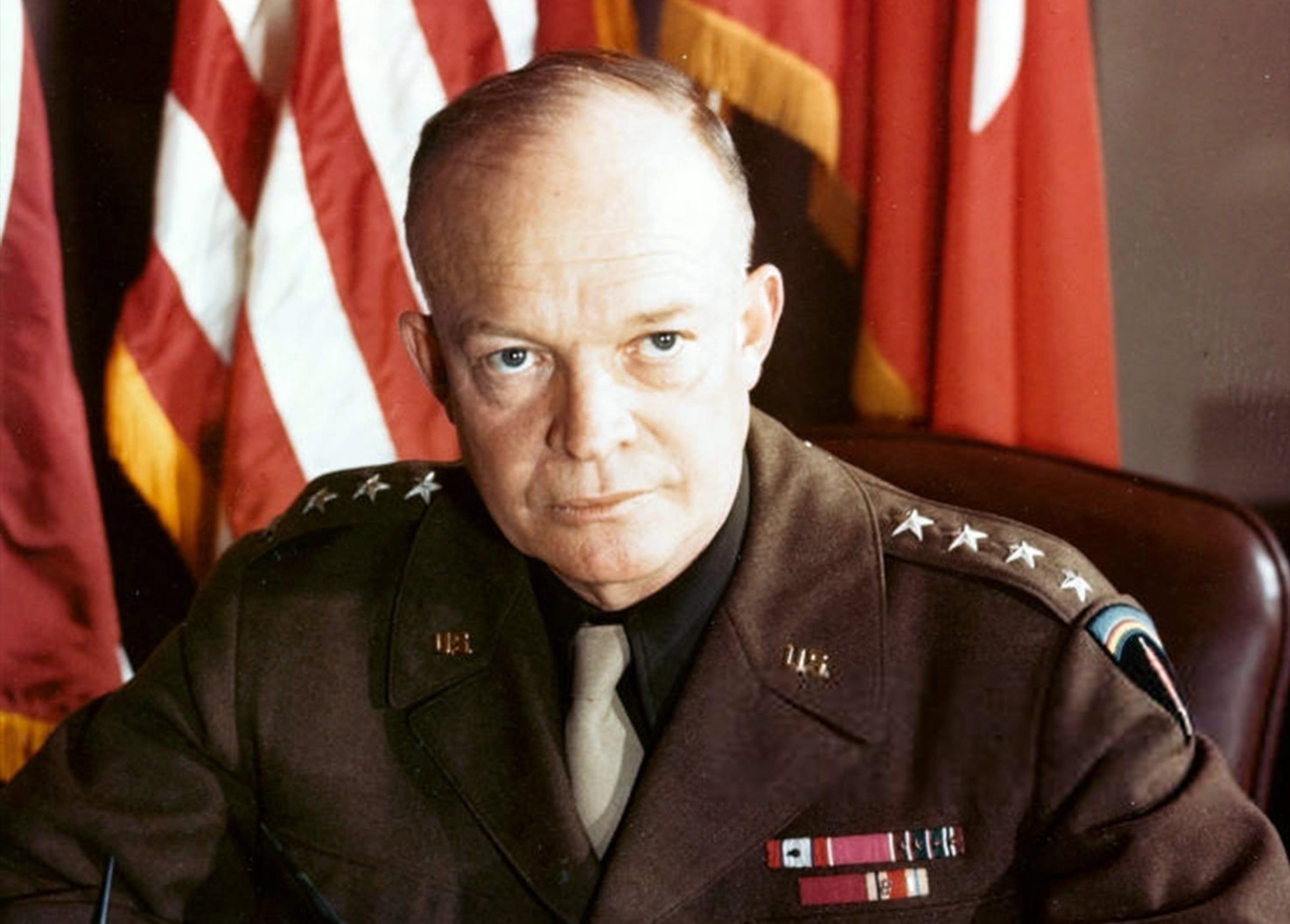
A Question of Duty
"In the crucible of war, an extraordinary romance collides with a leader’s devotion to duty." 'A Question of Duty' offers a rare kind of wartime drama - one told not through action or spectacle, but through stillness, restraint, and the emotional cost of leadership. Set in England and North Africa during the final phase of World War II, the story explores the unspoken relationship between General Eisenhower and his driver-secretary, Kay Summersby. This is not a tale of battlefield heroics, but of private reckonings: what must be sacrificed, what must remain unsaid, and how history often forgets the quietest moments that shaped it. Written with sharp emotional clarity and historical insight, the screenplay is intimate in scale and epic in implication. The silences speak louder than the dialogue. The love - or something close to it - remains unresolved, and therefore more powerful.
This project is a remarkable opportunity to bring to life a story that honours its time, its characters, and its audience with intelligence and grace. in the shadows of global conflict, this beautifully restrained wartime drama charts the evolving relationship between Eisenhower and his driver-secretary, Kay Summersby. As the world hurtles toward invasion, the film lingers in the moments between movement: the silence of car rides, the weight of unspoken feelings, the tension between loyalty and longing. The story resists melodrama, instead offering a study in emotional intelligence and personal cost. What emerges is a portrait not just of a leader, but of a man - and of the woman whose life, though often overlooked, shaped his private world. Visually elegant and emotionally astute, A Question of Duty is a film that trades spectacle for soul. It’s a story of what history records - and what it chooses to leave out.
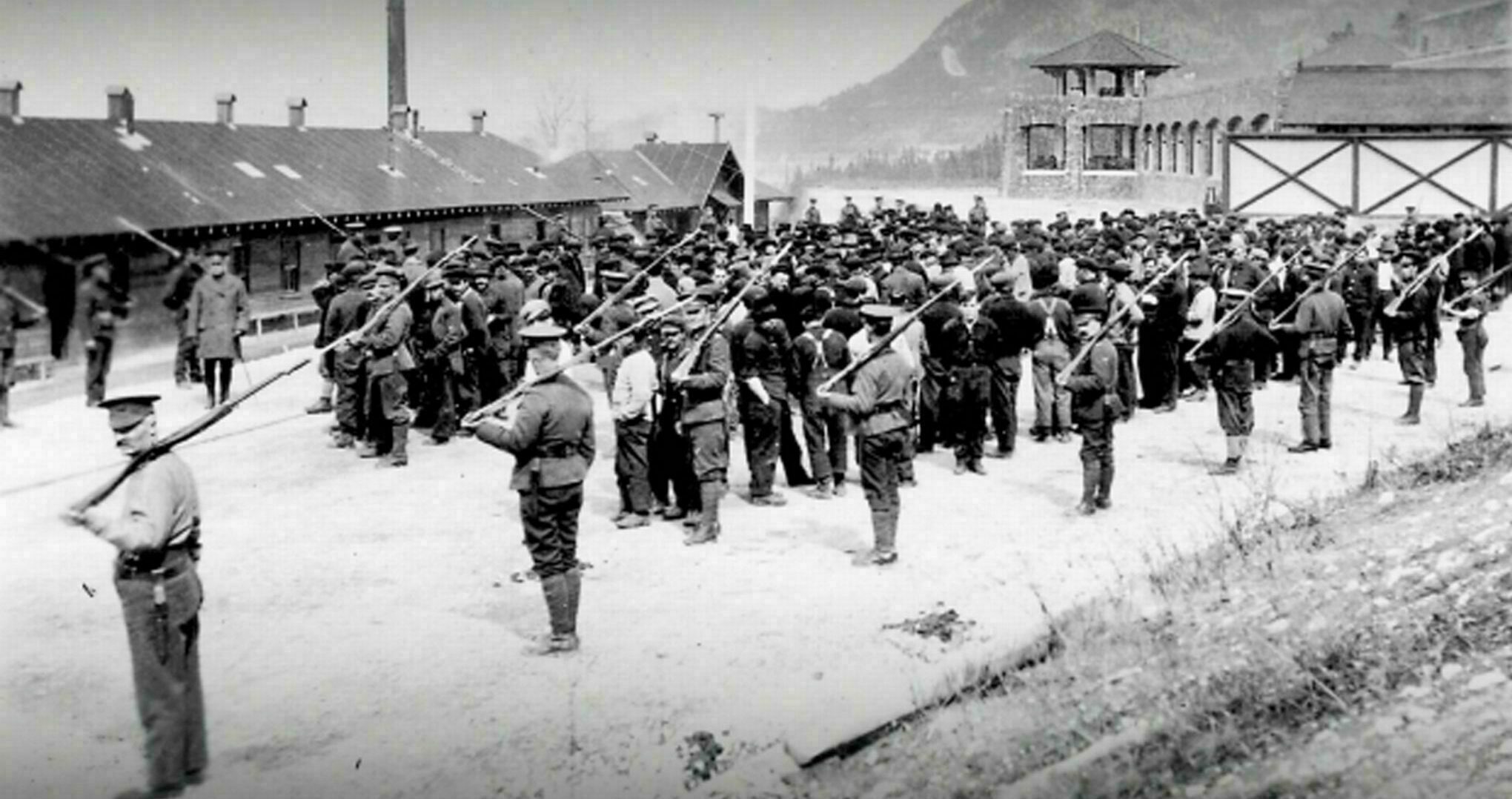
The University of Revolution
In the aftermath of the Irish Easter Rising of 1916, with Dublin city lying in ruins and the country in political turmoil, 1,800 young men are rounded up and interned in a concentration camp at Frongoch, north Wales. As the Irish peoples’ attitude towards independence shifts due to the barbaric treatment of the Rising’s leaders, a young Michael Collins organises the disparate Republican groups into one force as they fight the appalling conditions illegally imposed upon them, and the legal issue of their perverse conscription into the British Army. Following their eventual release from Frongoch, they return to their homeland to find much has changed.
'The University of Revolution' reveals how the Irish people properly embraced the idea of independence following the Easter Rising, and how the leaders of the independence movement began to prepare for it. It's about the birth of the Ireland we recognise today, and how the events portrayed led the Irish people to embrace their identity on a truly national scale for the first time.
Based on true events and using actual first-hand recollections from descendants of some participants in the Rising, 'The University of Revolution' is the first film to explore the little-known concentration camp at Frongoch, which the British originally constructed to house German prisoners of war during WWI. It subsequently came to be known as 'The University of Revolution' due to the grouping together of originally disparate factions looking to secure 'home rule' for Ireland, during a period when the British military resources were almost fully directed towards the efforts in mainland Europe. The period the Irish rebels spent interned at Frongoch is credited with being a fundamental aspect of the eventual victory Ireland secured in the battle for independence.

’88 The Second Summer of Love
'88 The Second Summer of Love is a sun-drenched neo-noir set between the underground clubs of late-80s London and the seductive ruin of pre-rave Ibiza. When Luke, a drifting early 'house music' DJ, hears rumours that Vince Delaney, a notorious London figure long thought dead, has reappeared, he’s pulled back into a life he thought he’d outgrown. What follows is a spiral of music, memory, and reckoning, set to the pulse of acid house and the crash of old power giving way to new culture. It's 'The Third Man' by way of 'Sexy Beast', with a beat that never quite lets you go.
’88 THE SECOND SUMMER OF LOVE is the story of Luke, an up-and-coming DJ who finds himself at the forefront of the house music explosion that drives these events, and what happens when his estranged, career-criminal father Vince Delaney suddenly dies. Soon after the funeral Vince's Marbella based business partner Donna informs Luke of the full extent of his inheritance, which includes Vince's recent plan to open a new nightclub on the 'White Isle' of Ibiza.
Reminiscent of 'Trainspotting' and 'La Femme Nikita', '88 is an absorbing, pulsating story examining the broader changes taking place in UK society as a whole, the events also tangling with the creation of the new market for ecstacy. As Luke reflects upon his relationship with the recently deceased Vince, his feelings for his father's former business partner Donna begins to interfere with his DJing career, leading to a dramatic finale on the White Isle.
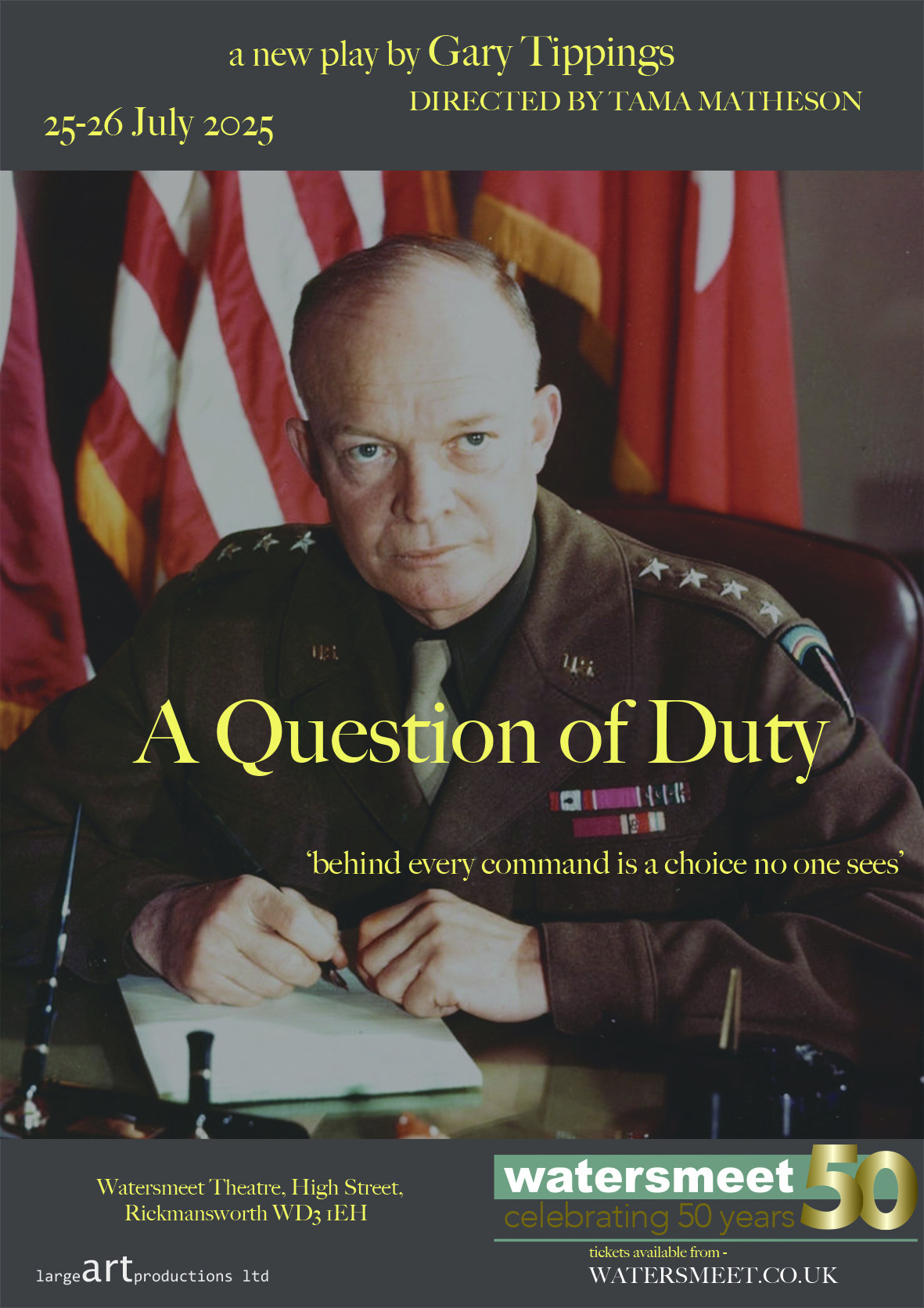
A Question of Duty (the stage play)
“A Question of Duty is a triumph. Gary Tippings has achieved something truly unique in telling one of the untold stories of the Second World War. Compelling from start to finish, it sensitively handles some of the key relationships at the heart of the Anglo American Alliance. A brilliant new play, a wonderful night out!” Camilla Tominey - The Telegraph. “I see A Question of Duty as an intimate portrait of one of the most influential figures of the 20th century. On one pivotal night, as the Second World War nears its end, General Dwight D. Eisenhower loosens his tie and reveals his humanity. As he enjoys a few drinks in cautionary celebration with his closest confidants, he reflects on the crushing weight of command, not just the decisions that shape history, but the personal doubts, loyalties, and sacrifices that come with leadership. It’s a story that reminds us even the strongest leaders are, at heart, deeply human.” - Jim Hanks. Following the success of the debut performances, the acclaimed American actor Jim Hanks will take on the role of General Dwight D. Eisenhower in the play's next London run, dates and venue planned for early 2026 with announcements on both coming soon.
Set aboard Eisenhower’s private wartime train in December 1944, A Question of Duty explores the unseen moments behind the public face of one of the most important military leaders of the 20th century. While the fate of Europe hangs in the balance, Eisenhower and his closest aides confront private doubts, personal loyalties, and the human costs of leadership., who has built a career in both film and theatre and is known to many as the brother of Tom Hanks, brings his own artistry, presence, and authenticity to the role. With his commanding stature, warm cadence, and deep dramatic instincts, Jim Hanks offers a strikingly human portrait of Eisenhower at a moment of unimaginable pressure. Set within the shadow of World War II, A Question of Duty is a play of remarkable restraint and emotional intelligence. Focusing on a brief, charged period aboard General Eisenhower’s mobile command train, the drama explores the unrelenting pressure of leadership when the world is watching, whilst exploring the unspoken bond between Ike and his driver-secretary Kay Summersby, and his friendship with the train's permanent Sergeant, the young Londoner Albert Phillips.
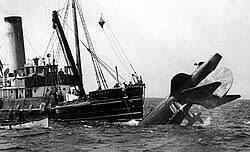
The Forgotten - The Men of HMS Thetis
On the eve of war, Britain’s newest submarine sank during a routine trial dive in Liverpool Bay. Ninety-nine men - sailors, shipyard workers, and navy inspectors - suffocated within sight of shore, their deaths then concealed beneath layers of bureaucracy and lies. The Forgotten is a four-part political thriller and human tragedy about class, truth, and the cost of silence, a true story of ordinary men who paid for the pride of an empire on the brink of war.
For decades, the sinking of HMS Thetis was a story Britain preferred to forget. Ninety-nine men died within sight of home, yet their suffering was buried beneath war, bureaucracy, and silence. The Admiralty’s official line - that the men “died instantly” - was accepted without question. When the submarine was raised on the day Britain declared war the tragedy simply disappeared into history. It wasn’t until the 1990s, when farewell letters from the wreck were finally made public and local communities in Merseyside began to tell their own version of events, that the true scale of the loss and the cover-up entered the national consciousness. In the 2000s, as the world watched the Kursk disaster unfold, Thetis was suddenly seen for what it was: an early, British example of institutional denial, class prejudice, and bureaucratic failure in the face of human tragedy.
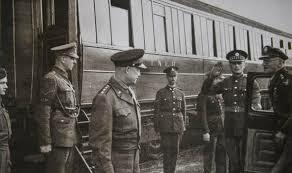
Train ‘Alive’ - The Secret War of Eisenhower’s Train
At the height of World War II, as the Allies fought to keep the dream of a free Europe alive, a unique and secret machine was created by the War Department: Train Alive - General Eisenhower’s mobile war room, a rolling command centre hidden on Britain’s railways. This documentary uncovers the story of the train that carried the planning of the Allied strategy to its logical conclusion.
In Eisenhower’s train, the decisions that would shape the course of D-Day and the liberation of Europe were made. The carriages became chambers of strategy, secrecy, and duty, a theatre of war invisible to the public but vital to the Allied cause.
Train Alive is more than a story of steel, steam, and strategy. It is a hidden chapter of wartime history - where the rhythms of the rails carried the pulse of a nation at war, and where Eisenhower’s “mobile war room” became both a symbol of secrecy, and of survival.
Team Members

Gary Tippings
Beginning his production career at the BBC in the early 80s, Gary went on to work at C4 Television as a senior production assistant. Having spent most of the 1990s working on the other side of the camera as an actor, he also has some twenty-plus years of experience as a writer of novels and short stories. As well as a screenwriter and playwright, Gary is also the writer of the highly regarded sports biography 'The Stolen Title'.
Bringing all these elements together Gary incorporated Large Art Productions with a view to developing film, theatre, and television productions. He is the writer of the WWII drama/ love story 'A Question of Duty', and the historical Irish drama 'The University of Revolution '. Gary has recently completed the screenplay for a new project, 'Lapanka' (the Polish term for the 'rounding up' of civilians), a love story set in a slave labour camp in the Nazi controlled Germany of 1942. Gary is currently developing the stage play 'A Question of Duty', based on the feature film screenplay of the same name, focusing on the interplay of relationships between General Eisenhower, his driver Kay Summersby, and Albert Phillips, the British army sergeant assigned to his top secret train that was used as a 'mobile war room' for the duration of WW2.
